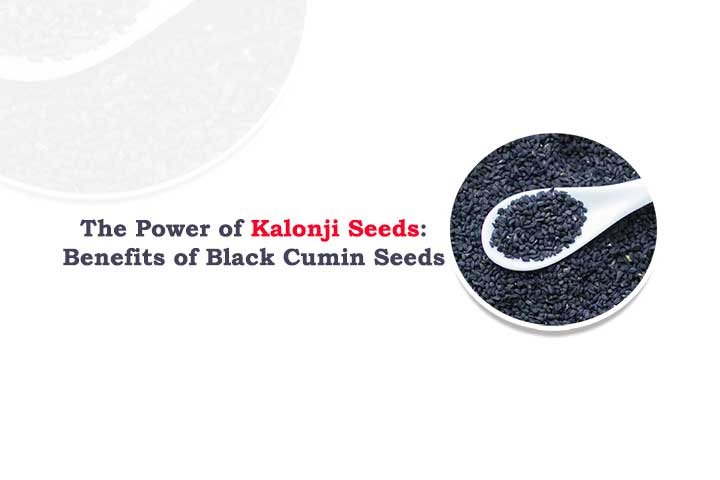
Have you heard of the tiny but mighty Kalonji seeds? These small black seeds, also known as black cumin seeds, pack a punch when it comes to health benefits. They have been used for centuries in traditional medicine and are renowned for their medicinal properties. In this article, we will explore the various benefits of Kalonji seeds and how you can incorporate them into your daily diet.
1. Introduction
In today’s fast-paced world, maintaining good health is of utmost importance. Natural remedies and holistic approaches to wellness have gained significant popularity in recent years. Among these, Kalonji seeds have emerged as a powerhouse of health benefits. Let’s delve deeper into the intriguing world of Kalonji seeds.
2. What are Kalonji Seeds?
2.1 History and Origin
Kalonji seeds have a rich history that dates back to ancient civilizations. These seeds were highly regarded by ancient Egyptians, who used them for their healing properties. They were even found in the tomb of Tutankhamun, the famous Egyptian pharaoh. Kalonji seeds are derived from the plant Nigella sativa, which is native to Southwest Asia.
2.2 Nutritional Composition
Kalonji seeds are a nutritional powerhouse. They are rich in vitamins, minerals, and antioxidants, making them a valuable addition to any diet. These seeds are an excellent source of protein, healthy fats, fiber, calcium, iron, and magnesium. They also contain essential oils like thymoquinone, which contribute to their potent health benefits.
3. Health Benefits
The benefits of Kalonji seeds are vast and encompass various aspects of health and well-being. Let’s explore some of the remarkable ways these seeds can enhance your overall health.
3.1 Boosts Immunity
Kalonji seeds possess immune-boosting properties. The presence of antioxidants in these seeds helps strengthen the immune system, protecting the body against infections and diseases. Regular consumption of Kalonji seeds can improve the body’s defense mechanism, keeping illnesses at bay.
3.2 Supports Digestive Health
Maintaining a healthy digestive system is essential for overall well-being. Kalonji seeds have been traditionally used to alleviate digestive issues such as bloating, indigestion, and stomach discomfort. The seeds’ anti-inflammatory properties soothe the digestive tract and promote better digestion.
3.3 Reduces Inflammation
Inflammation is a natural response of the body to injury or infection. However, chronic inflammation can lead to various health problems. Kalonji seeds possess anti-inflammatory properties that can help reduce inflammation in the body. Regular consumption of these seeds may provide relief from inflammatory conditions such as arthritis and asthma.
3.4 Promotes Healthy Skin
Everyone desires radiant and healthy-looking skin. Kalonji seeds can contribute to achieving this goal. The abundance of antioxidants in these seeds helps combat free radicals, which are responsible for premature aging and skin damage. Including Kalonji seeds in your diet can promote a youthful complexion and improve overall skin health.
3.5 Manages Blood Sugar
Maintaining stable blood sugar levels is crucial for individuals with diabetes or those at risk of developing it. Kalonji seeds have shown potential in managing blood sugar levels. These seeds aid in insulin regulation, improving glucose tolerance and reducing the risk of spikes and crashes in blood sugar levels.
3.6 Aids Weight Loss
Struggling with weight loss? Kalonji seeds might be the secret ingredient you need. These seeds are rich in fiber, which helps promote satiety and curb unnecessary cravings. Incorporating Kalonji seeds into your diet can support your weight loss journey by keeping you feeling full for longer and reducing calorie intake.
3.7 Enhances Respiratory Health
Respiratory ailments such as asthma and allergies can significantly impact one’s quality of life. Kalonji seeds possess bronchodilatory properties, which can help relax the airways and improve respiratory function. Including these seeds in your diet may contribute to better respiratory health.
3.8 Supports Heart Health
Maintaining a healthy heart is vital for overall well-being. Kalonji seeds offer numerous benefits for cardiovascular health. They help regulate cholesterol levels, reduce blood pressure, and improve overall heart function. Incorporating these seeds into your diet can contribute to a healthier heart and a reduced risk of heart diseases.
Here’s a table summarizing the nutritional values of Kalonji seeds:
Nutritional Values of Kalonji Seeds per 100 grams:
| Nutrient | Amount |
|---|---|
| Calories | 345 |
| Total Fat | 16.5 grams |
| Saturated Fat | 1.5 grams |
| Monounsaturated Fat | 0 grams |
| Polyunsaturated Fat | 0 grams |
| Trans Fat | 0 grams |
| Cholesterol | 0 milligrams |
| Sodium | 88 milligrams |
| Potassium | 1,535 milligrams |
| Total Carbohydrates | 52 grams |
| Dietary Fiber | 14.6 grams |
| Sugars | 0 grams |
| Protein | 16.8 grams |
| Vitamin A | 0 IU |
| Vitamin C | 0 milligrams |
| Calcium | 931 milligrams |
| Iron | 9.6 milligrams |
| Magnesium | 535 milligrams |
| Zinc | 4.4 milligrams |
| Phosphorus | 498 milligrams |
| Copper | 0.6 milligrams |
| Manganese | 1.2 milligrams |
| Selenium | 3.1 micrograms |
| Omega-3 Fatty Acids | 0 grams |
| Omega-6 Fatty Acids | 0 grams |
Please note that these values are approximate and can vary slightly depending on the source and the specific batch of Kalonji seeds.
4. How to Incorporate Kalonji Seeds into Your Diet
Now that we understand the incredible health benefits of Kalonji seeds, it’s time to explore how to incorporate them into our daily diet. Here are a few simple and delicious ways to enjoy the goodness of Kalonji seeds:
- Sprinkle Kalonji seeds on salads or soups for added crunch and flavor.
- Blend Kalonji seeds into smoothies or yogurt for a nutritious boost.
- Use Kalonji seeds as a topping for baked goods like bread or muffins.
- Add a teaspoon of Kalonji seeds to your morning oatmeal or cereal.
- Infuse Kalonji seeds in hot water to create a soothing herbal tea.
5. Precautions and Side Effects
While Kalonji seeds offer numerous health benefits, it is essential to exercise caution and be aware of any potential side effects. Some individuals may experience allergic reactions or digestive discomfort when consuming Kalonji seeds. It is advisable to start with small quantities and monitor your body’s response. If you experience any adverse effects, discontinue use and consult a healthcare professional.
6. Conclusion
In conclusion, Kalonji seeds, or black cumin seeds, possess incredible health benefits that have been recognized for centuries. From boosting immunity to supporting heart health and promoting radiant skin, these tiny seeds can make a significant difference in your overall well-being. Incorporating Kalonji seeds into your daily diet can be a simple and effective way to harness their remarkable powers. So why wait? Start reaping the benefits of Kalonji seeds today and embark on your journey to better health.
FAQs
Q1. Can Kalonji seeds cure diseases? A1. Kalonji seeds have been traditionally used for their medicinal properties, but they should not be considered a cure for diseases. They can support overall health and well-being but should not replace medical treatment.
Q2. Are Kalonji seeds safe for everyone to consume? A2. While Kalonji seeds are generally safe for consumption, some individuals may experience allergic reactions or digestive discomfort. It is advisable to start with small quantities and monitor your body’s response.
Q3. How should Kalonji seeds be stored? A3. Kalonji seeds should be stored in a cool, dry place in an airtight container to maintain their freshness and potency.
Q4. Can Kalonji seeds be used topically for skincare? A4. Yes, Kalonji oil, derived from the seeds, can be used topically for skincare. It has moisturizing and antioxidant properties that can benefit the skin.
Q5. Can Kalonji seeds help with hair loss? A5. There is limited scientific evidence to support the claim that Kalonji seeds can help with hair loss. However, their antioxidant and anti-inflammatory properties may contribute to scalp health.












